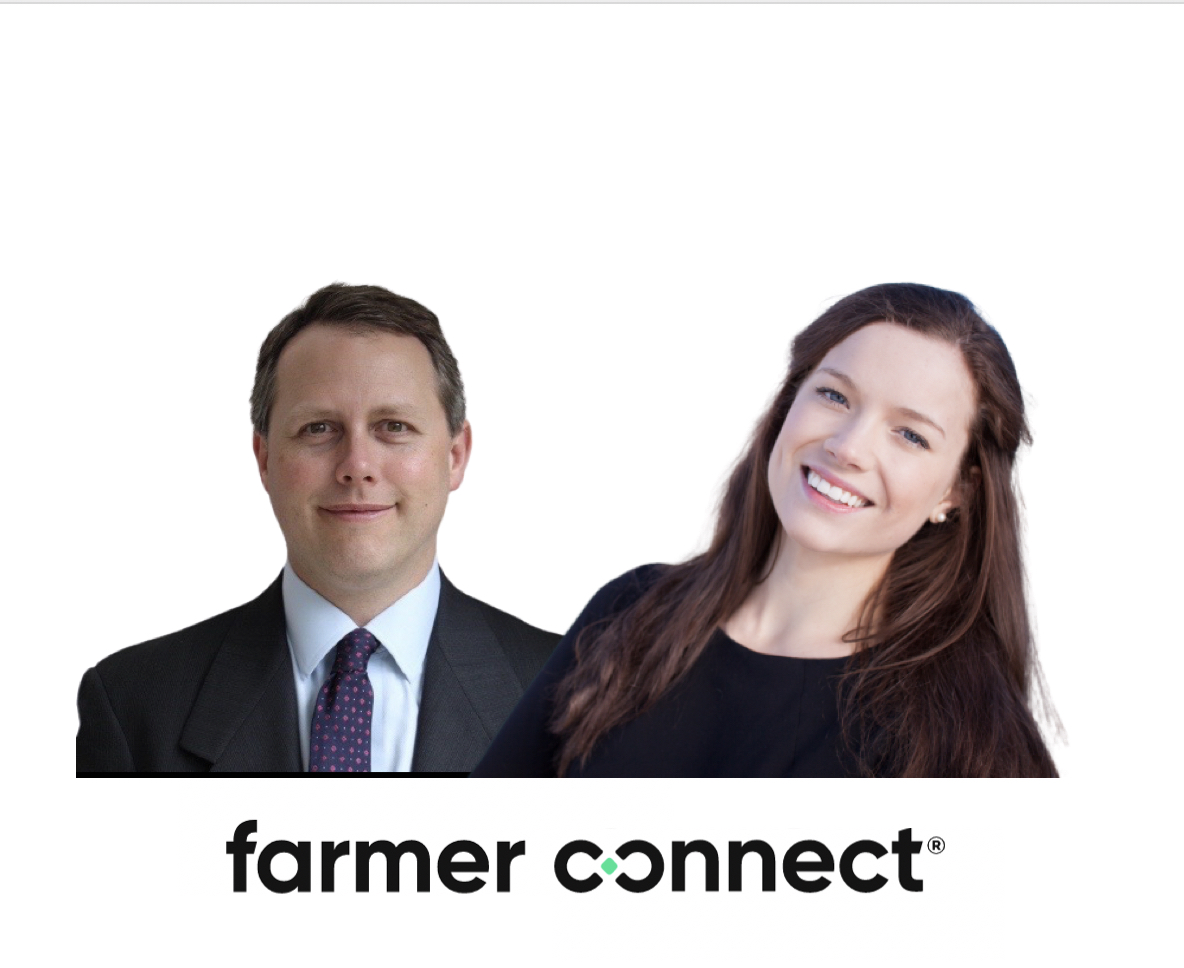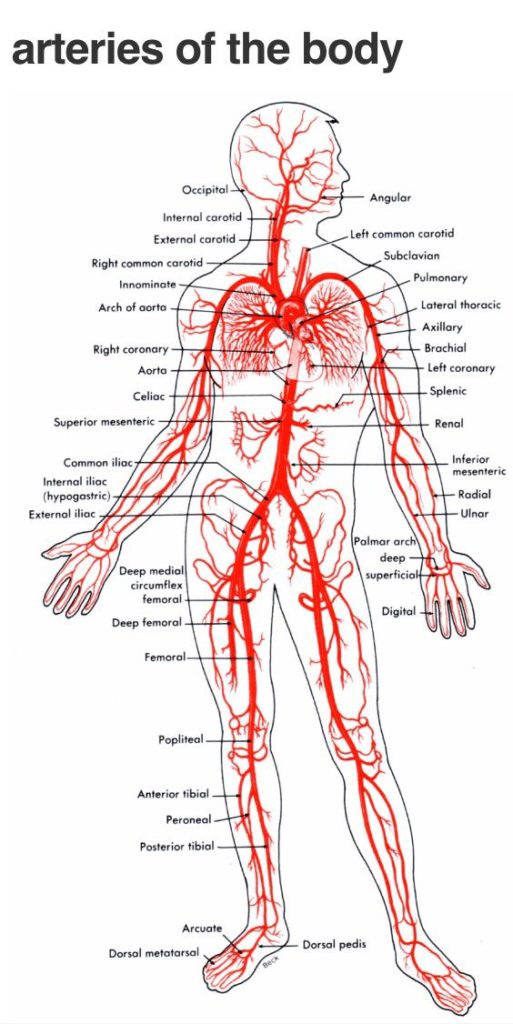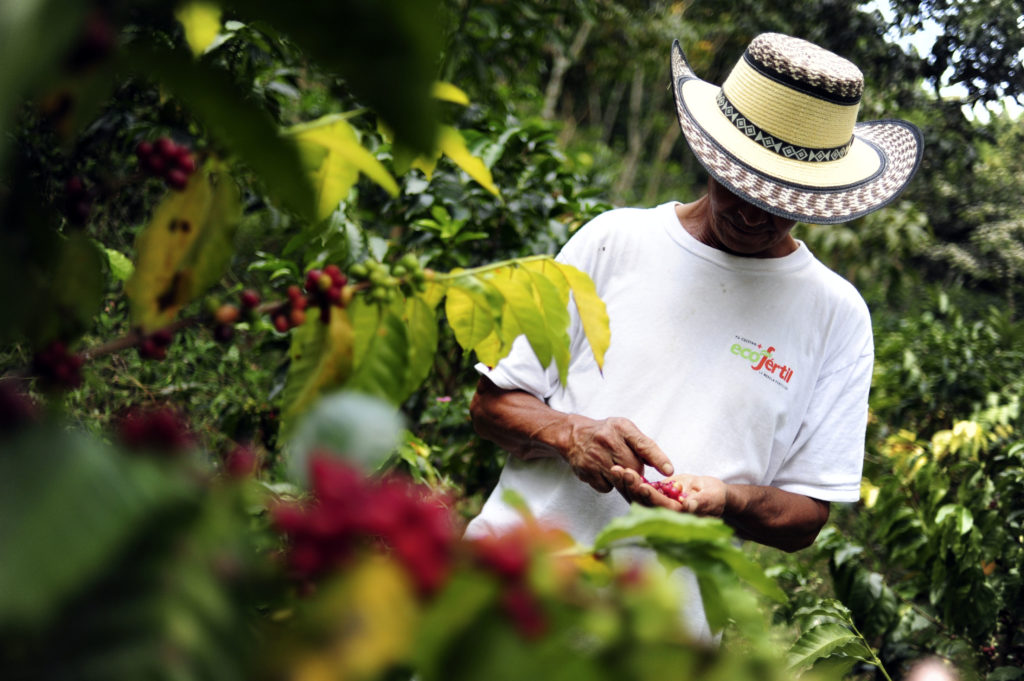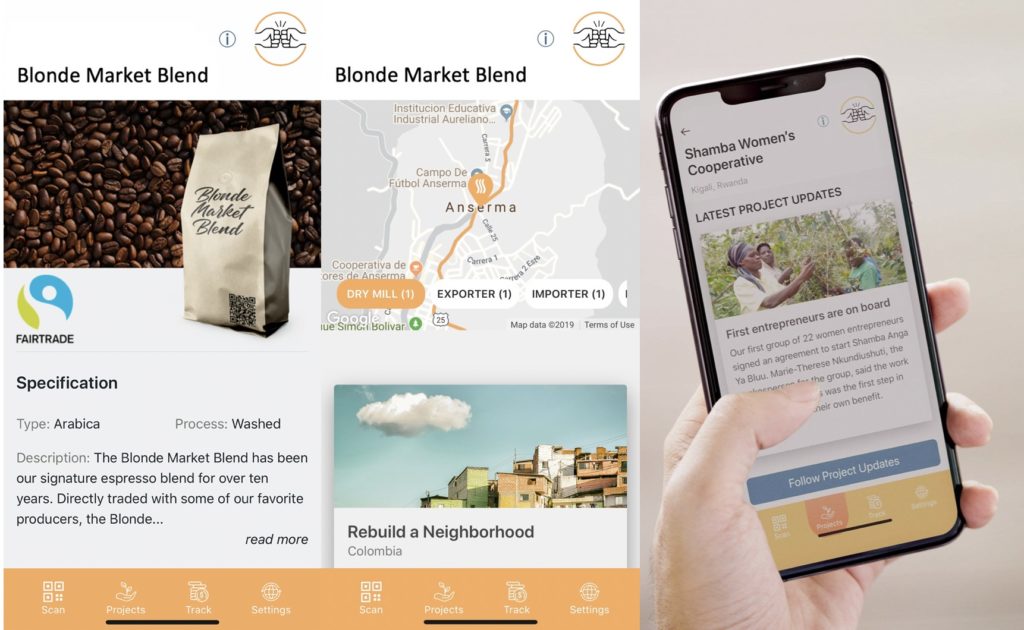
David Behrends, Founder & President at Farmer Connect and Managing Partner and Head of Trade at the coffee trading company named Sucafina, joins us along with Diana Kaliff, Business Development Manager at Farmer Connect to discuss coffee on the blockchain. In this podcast we get to learn about how Farmer Connect is helping to not only to digitise their industry but also in bringing transparency and traceability to all players within the coffee supply chain industry from farmers to the end consumer.
What is blockchain?
Diana describes blockchain in how they use the technology at Farmer Connect. For them blockchain is a secure database that enables to both securely store and share data between different business partners.
For Dave, blockchain is like the arteries in our bodies:
- Arteries have thick, strong walls, that make them resistant to high pressure that exists near the heart. This is similar to blockchain’s cryptographic level of security.
- Each major organ in the human body has their own special kind of artery that delivers the needed supplies. This is similar to blockchain in the sense that you have public blockchain, private blockchains, permissioned blockchains each one of them with their own specific use case.
- Arteries take oxygen away from the heart and distribute it very efficiently to all the body’s tissues. This is similar to a blockchain that has lots of complex data, standardising it and allowing it to seamlessly flow from one participant to another.
Challenges of the coffee industry and its level of digitisation
The coffee industry is characterised by a large amount of smallholder farmers who are facing a lot of issues around traceability and sustainability.
Consumers on the other hand, especially with millennials and post millennials really want to know two things:
- Has the coffee been responsibly sourced and has the farmer been paid a fair price
- Are the farmers themselves sustainable? Do they take care of social and environmental issues on the farm?
Being able to track both of these points is very difficult and to some degree impossible in the past. However, with the arrival of new technologies such as satellite imagery which can be used to measure deforestation. Soil samples analysis allows farmers to understand how much fertiliser is the right amount to be used for their farm. This kind of precision agriculture allows farmers to use less fertiliser and lower their environmental footprint. Both of these examples produce a lot of data.
In addition you have companies like Starbucks who have announced their intention to go resource positive – storing more carbon than it emits, eliminating waste and providing more clean freshwater than it uses.
All of the forementioned bring up lots of challenges and opportunities around how data is captured? How is it integrated? How is it stored? How is standardised? However, Dave believes that the biggest challenge is concerning the ownership of data. In the past many of the small farmers had zero technological capacity. In the past firms would send an agronomist to the field, they would “harvest” data of the farm, enter it into a table, hop back into a jeep back to the office and upload it into the company’s database to share the data with their clients. That wasn’t a really good model nor did it scale effectively.
Now with mobile phones, farmers can be empowered to own their data, to control their data and hopefully to monetize it as well.
An introduction to Farmer Connect
Farmer Connect is an industry led initiative, based out of Geneva, that is here to tackle the challenges of the coffee industry explained above. Farmer Connect is here to provide end to end connectivity between farmers at the beginning of the supply chain with the consumers on the other end. The vision is to humanise consumption through technology, because they believe that technology should bring people together, empower the individual and small businesses while at the same time reduce costs and inefficiencies for larger enterprises.
Farmer Connect allows for the sharing and storage of traceable data to establish trust between all players along the value chain so that the consumer can get answers to where the product came from and how it was produced.
As Dave mentions, Farmer Connect is here to de-commoditize a supply chain at scale by being able to put faces and names to the people who are growing the products they enjoy. This in turn gives consumers the opportunity to contribute and support farmer communities.
Why blockchain?
Players within the coffee supply chain have their data in silos, stored in different formats on different systems. The opportunity that Farmer Connect provides to these players with blockchain is to build an ecosystem with a large number of competitive participants in the coffee supply chain to interact in a trusted environment to be connected to allow to have end to end traceability.
All participants who upload data in a standardised format onto the platform, to retain control and ownership of the data. Having that control is important as it allows the players to choose to share data with a business partner but not so much with a competitor.
Working with IBM
Farmer Connect uses HyperLedger Fabric provided by IBM. The reason they chose to work with IBM is three-fold:
- In addition to blockchain IBM has a very diversified business
- Consortium members such as large roasters, which are publicly traded companies, trust IBM.
- Food Trust was gaining a lot of momentum with supermarkets where a portion of coffee is sold to supermarkets. Thus, lining Farmer Connect with the blockchain group that was having the most penetration in the retail space made a lot of sense
Dave is keenly watching IBM’s interoperability road map between its different ecosystems so that Farmer Connect can tap into Food Trust and tap into trade finance blockchain solutions and tap into crop insurance blockchains.
Launch of the consortium
Farmer Connect initially started off as an idea for a single company to improve their supply chain. However, as they started looking at it they realised that this should be an open source platform that is inclusive of everybody. They started reaching out to Farmer Associations, trading companies and to roasters to start the conversation about the common issues they are all facing that everyone recognises. Out of these initial conversations a steering committee was formed for Farmer Connect. In addition, they brought in four advisory board members with a wealth of experience who could contribute to the conversation. That was the early days of the consortium and since then has been growing almost daily with new members.
Technologies used in addition to blockchain
Blockchain sits at the centre of the solution as it provides a platform to securely store and share data. To facilitate farmers ability to connect to the platform using their mobile phone, Farmer Connect built a digital identity solution called Farmer ID. This works on any mobile phone that can send and receive SMS or through an app for smartphones.
In its basic form a farmer receives an SMS confirmation of when payment is done for their coffee whilst the buyer gets a digital receipt of that purchase. This provides a great level of transparency onto the Farmer Connect blockchain platform.
No personal information is stored onto the blockchain.
As the platform traces the history of where the coffee came from, and all the players along the supply chain who interacted with the coffee before it was purchased, Farmer Connect has launched an application called “Thank my Farmer”. This app allows the consumer to see where their coffee came from, get to know more about the coffee and it includes a crowdfunding function for sustainability projects in different regions.
Top challenges
The top challenges, Farmer Connect had to face where not so much from the technical side but more from the social and human side. Educating the industry, talking to people and helping them to understand what it is that Farmer Connect do and why on earth would they join an ecosystem and not just use your own internal solution. And if they had developed an internal solution why would they join Farmer Connect. Thus, education was a key challenge.
Another challenge was the hen and egg situation. Where questions of if my supplier or buyer isn’t on board, how do I join?
Farmer Connect, Starbuck’s Microsoft Azure and India’s Eka Plus
Farmer Connect operates in an industry where other players such as Starbuck’s Microsoft Azure blockchain solution and the Indian governments’ coffee e-marketplace called Eka Plus have developed their own solution. However, Diana believes what differentiates Farmer Connect is that they are not a company specific or a market specific platform. They are working globally, with different participants and competitors from the beginning to the end of the supply chain.
Status of Farmer Connect
Farmer Connect is in production. They recently launched their first traceable product on the US market in June 2020. Customers can buy and scan Folgers 1850 Coffee and trace the origin of the coffee.
Diana is excited about the new products and partnership announcements that will be coming to the market very shortly.
Plans for the next 12 months
Farmer Connect has enabled smallholder farmers to connect with a wide range of participants and engage with consumers. The team realised that they could offer this facility to other smallholder farmers who have different types of crops. Farmer Connect now has a solution to chocolate companies in the cocoa sector and they will be launching a whole new range of features and new products in the next 12 months.











